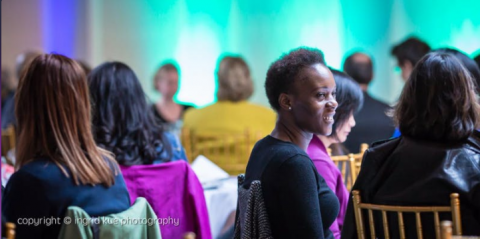ABCD: Healthy Neighbourhoods, Healthy Cities
 Chateau Lacombe
Chateau Lacombe
10111 Bellamy Hill Rd NW
This workshop will gather together Canada’s premier community development leaders and neighbourhood practitioners to explore the use of Asset-Based Community Development (ABCD) and leading neighbourhood revitalizing techniques. We have brought together for the first time seven of the world’s top authors and practitioners in the field.
In addition to master classes, we will offer learners the opportunity to take up to 20 highly practical workshops including four experiential neighbourhood tours. We have chosen to host this gathering in Edmonton, AB which is home to community leagues (neighbourhood associations) that have existed for nearly 100 years and also the Abundant Community Edmonton initiative that focuses on building connections at the block and neighbourhood level using ABCD - a highly innovative revitalization strategy.
Register for ABCD: Healthy Neighbourhoods, Healthy Cities
Why Invest in Neighbourhood Development?
Over the past three decades, there has been a shift in how we connect with one another. Today, people report fewer social connections, decrease in tolerance and trust, and an eroding political and civic engagement atmosphere in our communities. Building communities that bring residents together and provide a sense of belonging and connection leads to residents being happier, healthier, more likely to live longer and more willing to act for the common good.
While municipalities have traditionally focused on the physical components of a neighbourhood - paving sidewalks and roads or building houses, parks and arenas - cities across Canada are now realizing that they need to do more. They need to support the residents who live, work and play in the neighbourhoods to create a sense of belonging and connection. This is how vibrant cities are built.
So how can we support this work?
Asset-Based Community Development is an approach to the development of communities based on their strengths and potentials. It involves assessing the resources, skills, and experiences available in a community; organizing the community around issues that move its members into action; and then determining and taking appropriate action. In this workshop, you will learn the key fundamentals of ABCD and grow your skills and confidence to use these in your work. We will also connect you to the ground-breaking work that Tamarack is undertaking to deepen community in North America.
Neighbourhood work is one of the foremost opportunities available to us to foster a sense of belonging. Neighbourhoods are home to an abundance of people with shared experience, while at the same time offering great diversity in personalities, experiences, gifts, cultures and backgrounds. In this workshop you will learn strategies and gain tools and resources to build belonging and connection in neighbourhoods.
City Building is about harnessing community assets to build strong neighbourhoods. By connecting citizens to work together they strengthen the economic, social and physical infrastructure. Vibrant cities create the conditions for economic and social well being.




 3:00pm to 4:00pm
3:00pm to 4:00pm